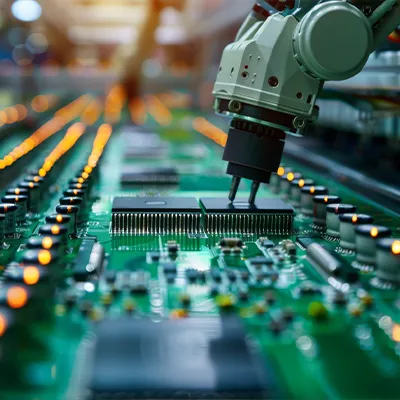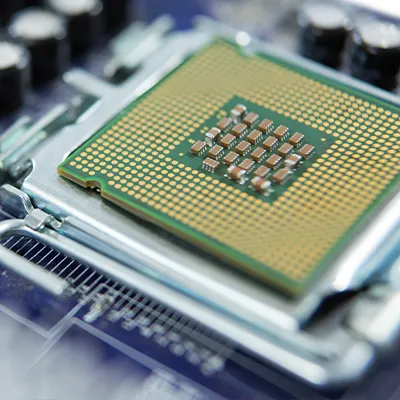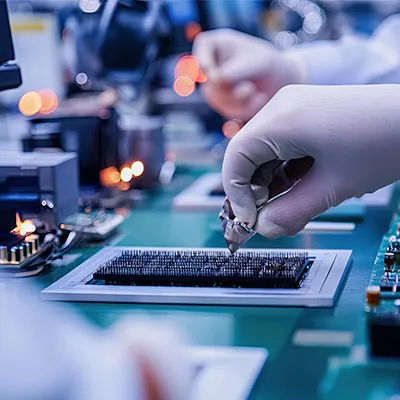Manufacturers have had to drastically rework their business operations amid the COVID-19 pandemic. Confronted with the largest health and economic crisis in recent history, factories faced acute shortages of workers and raw materials, even as they fought to keep up with strong demand.
These pandemic-related challenges have accelerated a technological transformation known as the “Fourth Industrial Revolution”, or Industry 4.0. The phenomenon refers to manufacturing and supply chain technologies that integrate physical production and operations with digital technology, machine learning, and big data to create “smart factories”, where production decisions can be seamlessly adjusted to meet real-time needs.
Amid the pandemic, a strong push to go digital
“Without real-time data, managers and suppliers essentially go blind due to the lack of travel, restricted factory capacity and disruptions across the supply chain,” says Willson Deng, the chief executive of manufacturing solutions provider Arcstone. The company works with clients to improve manufacturing productivity, reduce unplanned downtimes and improve inventory management, using digital toolsets that can trace production in real-time and integrate with equipment to improve efficiency.
Deng says Arcstone, which was founded in 2013 and is headquartered in Singapore, has seen a “surge” in demand for factory improvements and supply chain management since the onset of the pandemic. The company has implemented more than 140 projects with customers across South-east Asia, in a range of sectors including semiconductors, specialty chemicals, aerospace and fast moving consumer goods.
Before the pandemic, only a subset of companies initiated Industry 4.0 transformation efforts, with many others instead choosing to implement digital initiatives in a more piecemeal manner, or opting for a “wait and see” approach, says Dr Andreas Hauser, the managing director of digital service at testing, inspection and certification company TÜV SÜD. “The comprehension that companies must embrace Industry 4.0 and that there is no way around it – that is, digital or dead – is much more prominent now,” he notes.
Demand for technology solutions is expected to remain strong, Deng adds, fuelled by manufacturers gearing up for a future where supply chains will have to be increasingly nimble.
Companies keen to tap these opportunities can find out more during the Singapore Week of Innovation & Technology (SWITCH) 2021, a week-long festival for the innovation community which will bring together leaders, entrepreneurs, creators, accelerators and investors from industries such as healthcare and biomedical sciences, smart cities and urban solutions, trade and connectivity, and emerging sustainable technologies. SWITCH 2021 will feature multiple technology-related panels and fireside chats about Industry 4.0 technologies, including one on 10 November moderated by Hauser titled “Next 10 Years of Industry 4.0”.
Overcoming hurdles to implementing Industry 4.0 solutions
The two biggest hurdles when it comes to digital transformation for manufacturers are cost and availability of talent, according to Arcstone’s Deng.
To help manufacturers address cost-related concerns, Arcstone provides a free, lightweight solution aimed at helping companies fully digitalise and run a paperless shopfloor.
In addition, the firm works with institutes like Temasek Polytechnic to train students in the use of advanced manufacturing toolsets. “Once the students have learned the basics in the classroom, they are then paired with actual manufacturers to be able to deploy a free digital toolset into live factories. This creates a powerful next generation talent pool that will have first hand experience with digital manufacturing toolsets,” adds Deng.
Dr Hauser notes that companies will also need to re-frame their performance standards as they transform - for example, by introducing new indicators to measure the flexibility of the workforce and the production process. He says the Smart Industry Readiness Index (SIRI), launched in November 2017 by the Singapore Economic Development Board (EDB) in partnership with TÜV SÜD, can be a suitable tool to support companies in their transformation journey.
SIRI provides an assessment matrix that companies can use to quickly evaluate their current processes, systems, and structures. The assessment matrix also serves as a step-by-step improvement guide.
Future-proofing operations against structural uncertainties
All considered, investments in innovative digital manufacturing solutions are becoming easier to justify in these increasingly uncertain times.
The pandemic is expected to result in structural shifts in the way economies function, and the way business is done, notes Simon Lim, the executive director for manufacturing and engineering at Enterprise Singapore (ESG).
There is still significant uncertainty around how these changes will pan out, and Industry 4.0 solutions can help manufacturers prepare for an increasingly uncertain future. “The solutions can also be scaled up to meet the needs of global manufacturers following the test-bedding done in Singapore,” adds Lim.
His agency has been working with partners in both the private and public sectors to catalyse the development of innovative digital manufacturing solutions here.
One example is the Advanced Remanufacturing and Technology Centre (ARTC), a public-private collaboration between the Agency for Science, Technology and Research (A*Star), Nanyang Technological University (NTU) and industry partners. The ARTC seeks to bridge technological gaps in the adoption of advanced manufacturing and remanufacturing processes, by accelerating the transfer of innovative technologies from applied research to industrial applications.
The ARTC has a membership consortium with over 80 participants, ranging from global firms to small and medium enterprises (SMEs).
Under the auspices of the ARTC, consortium member Arcstone and A*Star launched a S$18 million joint laboratory in June 2021 to develop smart manufacturing solutions.
A*Star units ARTC and the Institute of High Performance Computing are collaborating with Arcstone to develop next-generation manufacturing execution systems (MES) from Arcstone's existing solutions. Arcstone and the A*Star units will integrate technologies such as artificial intelligence (AI) and the Industrial Internet of Things (IIoT) into Arcstone’s MES, so it can provide manufacturers with better visibility of their production processes, as well as recommend ways to improve the processes.
The joint lab will work on a range of projects, including enabling the MES to improve real-time visibility and control, as well as making production greener through data and optimisation.
ESG’s Lim highlights another effort aimed at spurring Industry 4.0 innovation – the pilot Innovation Factory at SIMTech launched in December 2020. A collaboration between ESG and A*Star, the Innovation Factory is a one-stop design and solution centre for SMEs, and aims to accelerate the transformation of ideas into commercially viable products that are ready for market adoption. To date, 38 local SMEs have joined the Innovation Factory and more than 15 projects to co-create products have been initiated.
Lim notes that it is also important to nurture and develop tech startups with innovative and practical solutions for the industry. This requires a collective effort from the government, trade associations and chambers, corporates and other industry partners.
ESG’s investment arm, SEEDS Capital, recently appointed 13 new co-investment partners to jointly invest in Singapore-based deep tech startups. The appointment of these new partners is expected to catalyse more than S$150 million worth of investments into deep tech domains, including advanced manufacturing and engineering. Besides co-investing, the partners will provide hands-on assistance to help the startups fast-track their commercialisation process, through mentorship and connections to potential clients through their networks.
At least one Singapore company is already riding the Industry 4.0 wave. Arcstone’s Deng says the company intends to expand into North Asia and North America in the coming year. The firm already has offices in Jakarta, Ho Chi Minh City, Hanoi and Mohali.
“Arcstone believes in the democratisation of digitalisation, to make sure all manufacturers have a solid data foundation to be able to take advantage of all that Industry 4.0 has to offer,” he adds.
Source: The Business Times © SPH Media Limited. Permission required for reproduction.







